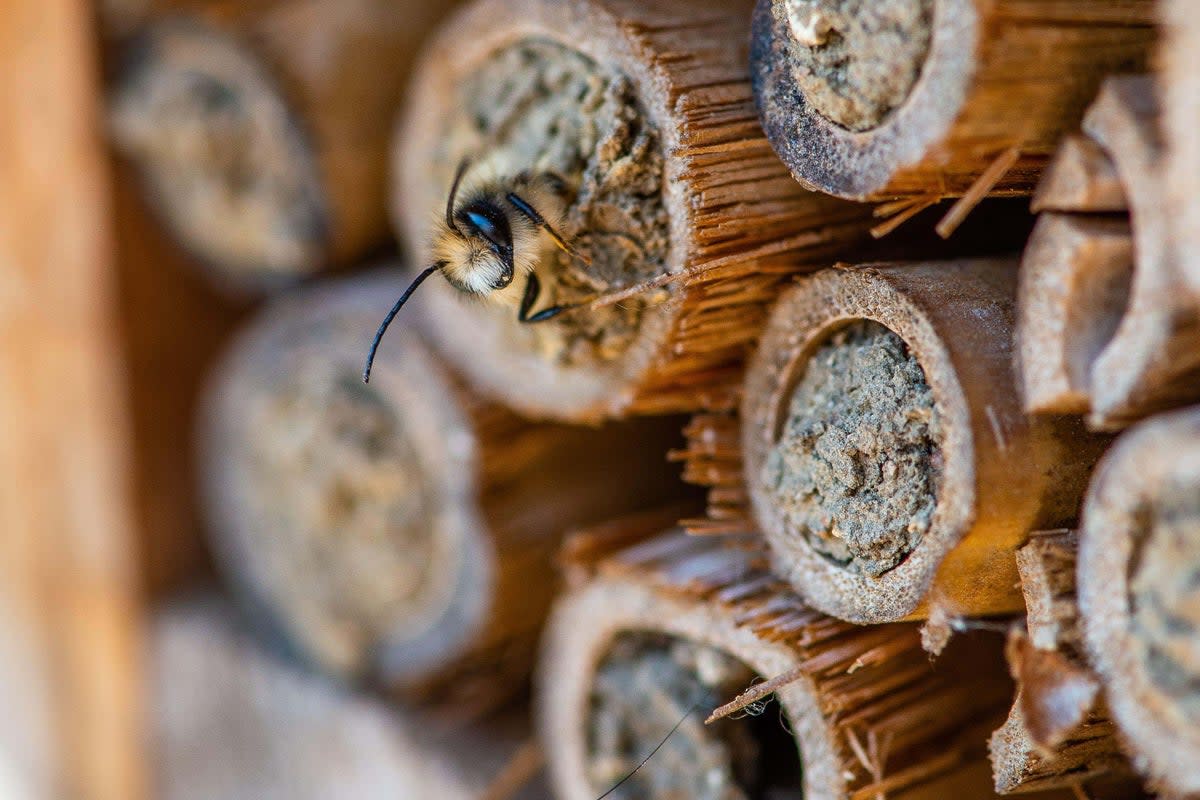How to help bees survive extreme weather

Freezing cold snaps and flooding in winter followed by long, sweltering summers, don’t only take their toll on us – they affect all species, including bees.
Dr Hayley Jones, senior entomologist with the RHS (rhs.org.uk), says it’s not so much the cold weather that affects the insects, but sudden changes in temperature due to climate change, which confuses them and damages their cycle.
“Historically, we’ve had a lot of cold weather. The problem is when it changes, such as a cold snap after a warm period,” she says.
“When the weather warms up, the insects become more active, and tend to come out of their restive hibernation state. However, when the cold snap happens, they either expend a lot of energy going back into that state, having not managed to do any foraging, or they are caught unawares, and if they are very exposed, they could die.”
To help gardeners help bees, Rowse Honey (rowsehoney.co.uk) and global charity Bees For Development (beesfordevelopment.org), share six tips for extreme hot or cold weather, with expert advice from professional beekeeper Amanda John.
To help them through extreme cold…
1. Grow plenty of pollinator-friendly plants
Planting a range of wildflowers throughout spring, summer and autumn is essential, so bees can harvest as much nectar and pollen as they need, creating honey stores in their hive for the winter, says John.
2. Create leaf and twig piles
Build piles of leaves and twigs for bumble bees, to offer them a cosy shelter from the elements. You could also build or buy a bee hotel for your garden, to help replace and restore lost habitat.
3. Avoid tidying fallen leaves and compost heaps
In open environments, bumble bees and other insects may form colonies under compost heaps and leaves. Avoid moving these, if you’re likely to spend your time inside.
Expert view: “Honey bees are the only bee species in the UK that overcome winter as a colony,” John explains. “In other species of bees, only the queen survives winter.
“Honey bees cope very well in cold weather; they form a cluster inside the hive and sort of ‘shiver’ to keep warm. In milder spells, the bees will fly around the entrance of the hive to orientate, and go on cleansing flights to relieve any waste.
“There is very little forage for the bees in the winter months, until the early-flowering plants bloom in spring. Therefore, the bees must collect enough food in the spring and summer to last the winter, which is why our continued support is so important.”
And in a heatwave…
1. Give them easy access to water
While placing water in a tray or basin, ensure separate trays for all wild species, she advises. While birds may be able to drink water from basins, bees can’t swim and can drown.
“Place shallow trays, with pebbles above the water level, so that bees can lay on them as they drink water.” says John. “Alternatively, fill buckets with water and create landing pads, using bark and branches.”
2. Leave some areas uncultivated
As individual bees struggle to survive without the support of their colony, leave parts of your garden untamed. For example, if a straggler were to leave its colony, small piles of woody prunings can provide shelter for the bee.
3. Offer food and supplements
As a bee’s main diet comprises pollen and nectar, planting pollinator-friendly flowers in your garden will help support them significantly. However, if this is not possible, providing a 50/50 sugar and water solution would also help, offering a one-off energy boost.
Expert view: “Honey bees cope pretty well in hot weather. The internal colony temperature is around 35 degrees Celsius, so they are used to working in warm conditions. When it’s hot outside, they collect more water and fan their wings at the entrance to cool down the hive,” John explains.
“If the colony is large in a small space, bees will beard (clump together) outside their hive’s entrance, to keep the internal temperature cool.”
Jones advises planting up your beds and borders densely. “More dense vegetation will provide shade and be a bit more resilient. You can help provide water and nectar for bees, by ensuring your garden is appropriately watered.”
To find out more, visit Rowse’s Hives For Lives programme (rowsehoney.co.uk/hives-for-lives), to protect bees and beekeepers worldwide.


